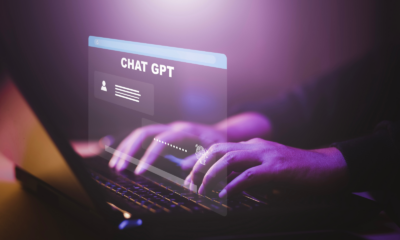This is Platformer, a newsletter on the intersection of Silicon Valley and democracy from Casey Newton and Zoë Schiffer. Sign up here.
Meta’s Oversight Board is too slow to matter

Today let’s talk about one of the most important cases that Meta’s Oversight Board has heard to date — and how the process ultimately revealed a fundamental problem with with the board’s operations.
Our story takes place in Cambodia, which for the past 38 years has been ruled by a dictator named Hun Sen. Since first taking office, the Cambodian leader has gradually consolidated power, regularly using violence and intimidation to suppress any opposition. This year, his party stood for an election that both the United States and European Union said was neither free nor fair.
One reason the election wasn’t fair is that Hun Sen disqualified the leading opposition party from participating in the vote. But it wasn’t enough to ensure his continued dominance through undermining the democratic process — he chose to intimidate and persecute his opponents as well.
On January 8th, in a speech that streamed live on his Facebook page, the prime minister — who has 14 million followers on the platform — took the occasion of a ribbon-cutting at a highway refurbishment project to threaten his enemies.
Here’s Agence-France Presse:
Speaking at a ceremony in Kampong Cham province, he said political challengers would need to choose between the courts and violence if they criticized his ruling Cambodian People’s Party (CPP).
“There are only two options — one is using legal action, the other is using sticks… What do you want?” he said. “Either you face legal action in court or I rally CPP people for a demonstration and beat you guys up.”
He also instructed lawyers to monitor speeches by his rivals.
“We won’t let you accuse us of being thieves all the time. The CPP cannot accept being called thieves who steal votes. We must sue whoever says that,” Hun Sen added.
At least five users reported the video for inciting violence. Upon its first review of the video, Meta determined that Hun Sen had not violated the platform’s community guidelines. On a second review, the company found that the video actually did violate its guidelines, but decided to leave it up under a “newsworthiness exemption.” (The idea is that if an elected official says something really horrible, sometimes it’s better to draw attention to that than to pretend it never happened — sunlight is the best disinfectant and all that.)
At the same time, Meta thought it was a close enough call that it referred the case to its Oversight Board — an independent body that can make binding decisions about what posts stay up on Facebook, and which come down.
Meta did not design the board to make decisions quickly, even in times of crisis. But by any standard, the Cambodia case has unfolded at a glacial pace. The board didn’t even accept the case until March, two months after the video had been posted. By then, it had already been viewed 600,000 times. Meanwhile, by then a rash of political violence had unfolded in Cambodia.
Here’s a report from Human Rights Watch on those attacks:
Since that speech, seven reported acts of violence have targeted a total of six opposition party members. Three instances occurred following a Candlelight Party planning meeting in Phnom Penh on March 18 for the July elections. Four additional cases were reported following a March 20 visit by party activists to the United Nations human rights office in Phnom Penh and their participation in a public gathering calling for the release of political prisoners. […]
The attacks had multiple similarities, suggesting that the same people were responsible for all of them. All four attacks were carried out by two men in dark clothes with dark motorcycle helmets riding a single motorbike, with the driver remaining on the bike while the passenger assaulted the victim. In three attacks, the assailants used an extendable metal baton as a weapon. In two attacks, the victims could hear the attackers confirming the victims’ identity moments before they were assaulted. No money or valuables were stolen. All of those interviewed said they believe they were targeted because of their participation in Candlelight Party activities.
Nearly four months after the violence began, and almost seven months after the original video was posted, the board finally got around to making a decision. It called for the video to be removed, and for Hun Sen’s Facebook and Instagram accounts to be suspended for at least six months — the first time the board had called for a head of state to be penalized in that way.
Under their arrangement, Meta has 60 days to respond to the board. Today, the company did. And while Meta removed the video from the prime minister’s page, it decided not to suspend him.
“We have removed the content that was the subject of this case and, consistent with our policies, applied appropriate account-level penalties associated with that action,” the company said in a blog post. “There is not currently any basis to suspend Hun Sen’s account under our policies.” (The board didn’t respond to my request for comment, though it is based in the United Kingdom and my message may have reached them after hours on Tuesday.)
If you’re asking “what is the point of all this?” — well, so am I
There’s a nuanced detail here about the decision. The board argued Hun Sen should have been suspended under a protocol that Meta introduced after the January 6th attacks in the United States that penalizes world leaders more heavily if they incite violence during times of unrest. (This policy was the reason that Donald Trump’s account was suspended for three years.) Meta decided Hun Sen’s remarks here didn’t fit that policy, since they came at the groundbreaking ceremony for that highway refurbishment.
Still, a board spokesperson told The Hill that it “stands by its original decision and urges Meta to do everything in its power to deter public figures who exploit its platforms to incite violence.”
“Elections are a crucial part of democracy and social media companies must ensure their platforms are not misused in ways which threaten to undermine them,” the spokesperson added.
At this point, if you’re asking “what is the point of all this?” — well, so am I.
On the whole, I’ve been enthusiastic about Meta’s Oversight Board experiment. Given how much vital political speech takes place on the company’s platforms, and how messy content moderation is at any scale, establishing an independent body to consider user appeals marked a step in the right direction. Before the board, every content decision ultimately rolled up to one person — CEO Mark Zuckerberg. After the board, an independent body could intervene to reverse decisions that it found to be in contradiction of the company’s policies.
But as I wrote last October, the board has at times been shockingly lazy — as in that quarter, when out of the 347,000 cases submitted by users for appeal, it chose to hear a measly three of them. And while both it and Meta tout long lists of policy recommendations it has made that the company has adopted, the fact that I wouldn’t have been able to name any without first looking them up suggests that for the most part the board is often only nibbling at the margins of relevance.
The board’s members are still treating cases as abstract thought experiments
Nowhere is this more evident than in the Cambodia case, which dragged on for the better part of the year before the board could muster the energy to tell Meta to remove a single post.
And sure, these cases can be complicated. They need to be translated into the relevant languages. Public comments must be solicited and considered. The board consults with experts. It takes time.
Moreover, had Meta followed the board’s recommendation, Cambodia could have retaliated by banning the platform in the country altogether — arguably to the detriment to the millions of Cambodians who rely on it for various needs. That’s worth serious deliberation.
But when platforms are considering questions related to credible incitement of violence — particularly incitements coming from a head of state — they should resolve them in far less than the 234 days it took the Oversight Board. There are millions of real people who are depending on them. And the board’s members, many of whom were drawn from academia, are still treating the cases referred to them as abstract thought experiments to be debated casually in between graduate seminars.
In Cambodia, the damage is done. The rivals were, in the end, beaten with sticks. Hun Sen’s party “won” the sham election. Last month he said he would install his son as prime minister, but would continue to serve as the country’s strongman in chief as the ruler of its sole major political party for years to come.
Earlier this summer, anticipating that he would be banned, Hun Sen briefly decamped to other platforms. He focused his attention on Telegram, with its large user base and famous indifference to content moderation.
But the storm passed, and now the prime minister is posting to Facebook as enthusiastically as ever. Over the past day, his account was updated more than a dozen times — revealing, if nothing else, that at least one player in this platform drama understands the importance of speed and scale.
Facebook Faces Yet Another Outage: Platform Encounters Technical Issues Again

Uppdated: It seems that today’s issues with Facebook haven’t affected as many users as the last time. A smaller group of people appears to be impacted this time around, which is a relief compared to the larger incident before. Nevertheless, it’s still frustrating for those affected, and hopefully, the issues will be resolved soon by the Facebook team.
Facebook had another problem today (March 20, 2024). According to Downdetector, a website that shows when other websites are not working, many people had trouble using Facebook.
This isn’t the first time Facebook has had issues. Just a little while ago, there was another problem that stopped people from using the site. Today, when people tried to use Facebook, it didn’t work like it should. People couldn’t see their friends’ posts, and sometimes the website wouldn’t even load.
Downdetector, which watches out for problems on websites, showed that lots of people were having trouble with Facebook. People from all over the world said they couldn’t use the site, and they were not happy about it.
When websites like Facebook have problems, it affects a lot of people. It’s not just about not being able to see posts or chat with friends. It can also impact businesses that use Facebook to reach customers.
Since Facebook owns Messenger and Instagram, the problems with Facebook also meant that people had trouble using these apps. It made the situation even more frustrating for many users, who rely on these apps to stay connected with others.
During this recent problem, one thing is obvious: the internet is always changing, and even big websites like Facebook can have problems. While people wait for Facebook to fix the issue, it shows us how easily things online can go wrong. It’s a good reminder that we should have backup plans for staying connected online, just in case something like this happens again.
Christian family goes in hiding after being cleared of blasphemy

LAHORE, Pakistan — A court in Pakistan granted bail to a Christian falsely charged with blasphemy, but he and his family have separated and gone into hiding amid threats to their lives, sources said.
Haroon Shahzad, 45, was released from Sargodha District Jail on Nov. 15, said his attorney, Aneeqa Maria. Shahzad was charged with blasphemy on June 30 after posting Bible verses on Facebook that infuriated Muslims, causing dozens of Christian families in Chak 49 Shumaali, near Sargodha in Punjab Province, to flee their homes.
Lahore High Court Judge Ali Baqir Najfi granted bail on Nov. 6, but the decision and his release on Nov. 15 were not made public until now due to security fears for his life, Maria said.
Shahzad told Morning Star News by telephone from an undisclosed location that the false accusation has changed his family’s lives forever.
“My family has been on the run from the time I was implicated in this false charge and arrested by the police under mob pressure,” Shahzad told Morning Star News. “My eldest daughter had just started her second year in college, but it’s been more than four months now that she hasn’t been able to return to her institution. My other children are also unable to resume their education as my family is compelled to change their location after 15-20 days as a security precaution.”
Though he was not tortured during incarceration, he said, the pain of being away from his family and thinking about their well-being and safety gave him countless sleepless nights.
“All of this is due to the fact that the complainant, Imran Ladhar, has widely shared my photo on social media and declared me liable for death for alleged blasphemy,” he said in a choked voice. “As soon as Ladhar heard about my bail, he and his accomplices started gathering people in the village and incited them against me and my family. He’s trying his best to ensure that we are never able to go back to the village.”
Shahzad has met with his family only once since his release on bail, and they are unable to return to their village in the foreseeable future, he said.
“We are not together,” he told Morning Star News. “They are living at a relative’s house while I’m taking refuge elsewhere. I don’t know when this agonizing situation will come to an end.”
The Christian said the complainant, said to be a member of Islamist extremist party Tehreek-e-Labbaik Pakistan and also allegedly connected with banned terrorist group Lashkar-e-Jhangvi, filed the charge because of a grudge. Shahzad said he and his family had obtained valuable government land and allotted it for construction of a church building, and Ladhar and others had filed multiple cases against the allotment and lost all of them after a four-year legal battle.
“Another probable reason for Ladhar’s jealousy could be that we were financially better off than most Christian families of the village,” he said. “I was running a successful paint business in Sargodha city, but that too has shut down due to this case.”
Regarding the social media post, Shahzad said he had no intention of hurting Muslim sentiments by sharing the biblical verse on his Facebook page.
“I posted the verse a week before Eid Al Adha [Feast of the Sacrifice] but I had no idea that it would be used to target me and my family,” he said. “In fact, when I came to know that Ladhar was provoking the villagers against me, I deleted the post and decided to meet the village elders to explain my position.”
The village elders were already influenced by Ladhar and refused to listen to him, Shahzad said.
“I was left with no option but to flee the village when I heard that Ladhar was amassing a mob to attack me,” he said.
Shahzad pleaded with government authorities for justice, saying he should not be punished for sharing a verse from the Bible that in no way constituted blasphemy.
Similar to other cases
Shahzad’s attorney, Maria, told Morning Star News that events in Shahzad’s case were similar to other blasphemy cases filed against Christians.
“Defective investigation, mala fide on the part of the police and complainant, violent protests against the accused persons and threats to them and their families, forcing their displacement from their ancestral areas, have become hallmarks of all blasphemy allegations in Pakistan,” said Maria, head of The Voice Society, a Christian paralegal organization.
She said that the case filed against Shahzad was gross violation of Section 196 of the Criminal Procedure Code (CrPC), which states that police cannot register a case under the Section 295-A blasphemy statute against a private citizen without the approval of the provincial government or federal agencies.
Maria added that Shahzad and his family have continued to suffer even though there was no evidence of blasphemy.
“The social stigma attached with a blasphemy accusation will likely have a long-lasting impact on their lives, whereas his accuser, Imran Ladhar, would not have to face any consequence of his false accusation,” she said.
The judge who granted bail noted that Shahzad was charged with blasphemy under Section 295-A, which is a non-cognizable offense, and Section 298, which is bailable. The judge also noted that police had not submitted the forensic report of Shahzad’s cell phone and said evidence was required to prove that the social media was blasphemous, according to Maria.
Bail was set at 100,000 Pakistani rupees (US $350) and two personal sureties, and the judge ordered police to further investigate, she said.
Shahzad, a paint contractor, on June 29 posted on his Facebook page 1 Cor. 10:18-21 regarding food sacrificed to idols, as Muslims were beginning the four-day festival of Eid al-Adha, which involves slaughtering an animal and sharing the meat.
A Muslim villager took a screenshot of the post, sent it to local social media groups and accused Shahzad of likening Muslims to pagans and disrespecting the Abrahamic tradition of animal sacrifice.
Though Shahzad made no comment in the post, inflammatory or otherwise, the situation became tense after Friday prayers when announcements were made from mosque loudspeakers telling people to gather for a protest, family sources previously told Morning Star News.
Fearing violence as mobs grew in the village, most Christian families fled their homes, leaving everything behind.
In a bid to restore order, the police registered a case against Shahzad under Sections 295-A and 298. Section 295-A relates to “deliberate and malicious acts intended to outrage religious feelings of any class by insulting its religion or religious beliefs” and is punishable with imprisonment of up to 10 years and fine, or both. Section 298 prescribes up to one year in prison and a fine, or both, for hurting religious sentiments.
Pakistan ranked seventh on Open Doors’ 2023 World Watch List of the most difficult places to be a Christian, up from eighth the previous year.
Morning Star News is the only independent news service focusing exclusively on the persecution of Christians. The nonprofit’s mission is to provide complete, reliable, even-handed news in order to empower those in the free world to help persecuted Christians, and to encourage persecuted Christians by informing them that they are not alone in their suffering.
Free Religious Freedom Updates
Join thousands of others to get the FREEDOM POST newsletter for free, sent twice a week from The Christian Post.
Individual + Team Stats: Hornets vs. Timberwolves
CHARLOTTE HORNETS MINNESOTA TIMBERWOLVES You can follow us for future coverage by liking us on Facebook & following us on X: Facebook – All Hornets X – …
Source link
-

 MARKETING6 days ago
MARKETING6 days agoEffective Communication in Business as a Crisis Management Strategy
-

 SEARCHENGINES7 days ago
SEARCHENGINES7 days agoGoogle Won’t Change The 301 Signals For Ranking & SEO
-

 SEO6 days ago
SEO6 days agobrightonSEO Live Blog
-

 PPC6 days ago
PPC6 days ago9 Ecommerce Trends to Boost Your Business in 2024
-

 SEO4 days ago
SEO4 days agoGoogle March 2024 Core Update Officially Completed A Week Ago
-

 SEO7 days ago
SEO7 days agoHow To Write ChatGPT Prompts To Get The Best Results
-

 WORDPRESS5 days ago
WORDPRESS5 days ago9 Best WooCommerce Multi Vendor Plugins (Compared)
-
SEARCHENGINES5 days ago
Daily Search Forum Recap: April 25, 2024















